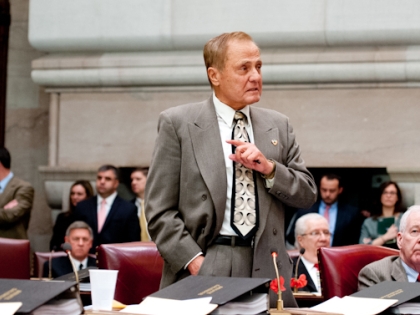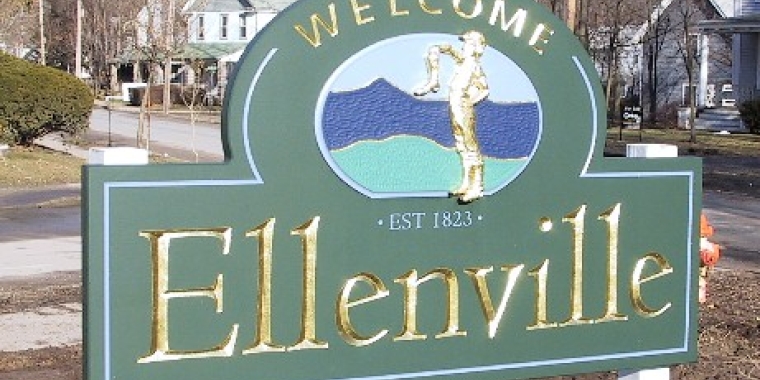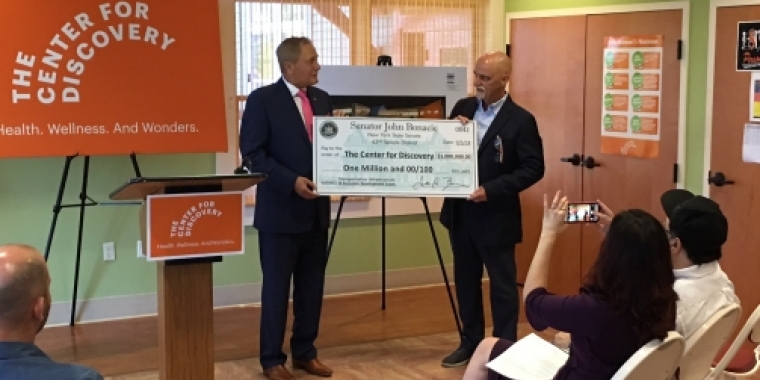
Bonacic: if New York City Wants to Limit Land Use Rights, Let Them Pay for It
John J. Bonacic
January 18, 2010
-
ISSUE:
- Energy
State Senator John J. Bonacic (R/I/C – Mt. Hope), said the City of New York should purchase gas drilling rights in the Catskills, rather than try and have the State DEC prohibit the drilling entirely.
An Attempt to Improperly Expand Watershed Regulations Without Compensation
In 1997, the Watershed agreement was signed. That agreement set up the regulatory rights of the City of New York and the land use responsibilities of the people of the people of the Watershed. In 1999, the City attempted to back door more regulations throughout the Watershed by using the Army Corps of Engineers. (http://www.nytimes.com/1999/03/19/nyregion/city-reverses-itself-on-effort-to-protect-land-at-reservoirs.html?pagewanted=all )
“The City is trying to do exactly what it tried in 1999 – back door more regulations onto watershed area lands, without additional compensation. Fortunately, DEC Commissioner Grannis, to his tremendous credit, is resisting those efforts,” Bonacic said.
Bonacic said the issue was far greater than gas drilling alone. “If New York City can stop development of energy sources in the Catskills, they can diminish the value of people’s land without compensation. Anytime a government singles out my constituents, and tries to diminish their wealth potential, without offering just compensation, I am opposed on principle. That applies to the New York City Democrats who imposed the MTA tax, and the New York City bureaucrats who are trying to limit our property rights. Taking from us – whether it was money in terms of the MTA tax, or land rights in terms of gas exploration, without just compensation, is unacceptable,” Bonacic said.
The City Supported NYRI – Raising our Electric Rates and Blighting Our Land
The Senator also noted that the City pushed for NYRI – a massive power line project from central New York to Orange County. Mayor Michael Bloomberg opposed Bonacic’s legislation which took away NYRI’s right of eminent domain under State Law. That legislation, according to the New York Times, substantially impeded NYRI’s ability to ultimately succeed. NYRI sued Bonacic in Federal Court over the law. Bonacic’s law was, however, upheld.
Bonacic argues it is disingenuous for the City, on one hand, to push to raise upstate electric rates and blight watershed area lands, while now trying to restrict energy development found to be safe by the State DEC. The DEC has always had a strong reputation as a regulator and protector of the environment. “The DEC is not exactly known for being friendly to polluters or developers – particularly in the Catskills. For them to sign onto gas exploration is a pretty good indication that it is safe,” Bonacic said.
A Potential Solution
Bonacic also offered a solution to the City DEP and the so-called “environmental” groups which oppose gas drilling in the Catskills. “Let them buy the development rights. For those landowners who want to sell their gas rights, let the City pay the same market rate to keep the land undeveloped. We buy agricultural development rights for tracts of land we wish to preserve. Let those who oppose the lawful exploration and extraction of gas in the Catskills pay for those development rights the same way the State and local governments pay for development rights owned by farmers,” Bonacic said.
Bonacic’s proposal was met with bi-partisan support Town of Hamden (Delaware County), Supervisor Wayne Marshfield said, “People in the Catskills are struggling. There is not a lot of wealth here. Trying to impose new regulations by using a State Agency to do its bidding is wrong. If the City wants to further limit our property rights, they should pay us to limit them. That would be in keeping with the spirit of the watershed agreement and the respect both the City and upstate need to have for each other.”
“Attempting to back door more regulations onto the watershed lands is offensive, breaches the spirit of the watershed agreement, and diminishes trust between the watershed communities and the City. If the City wants to renegotiate the watershed agreement, then let them do it – but it is patently wrong for them to try to use sneaky back door efforts through another government agency, to do their bidding,” Bonacic concluded.
###
Share this Article or Press Release
Newsroom
Go to NewsroomSenator Bonacic Announces $50,000 Grant for The Village of Ellenville
September 4, 2018

Senator Bonacic Announces $75,000 for the Town of Thompson
September 4, 2018

